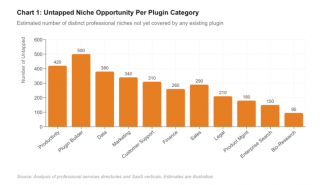Non-governmental organizations (NGOs) are requesting that a Public Interest Litigation (PIL) be brought before the Supreme Court to investigate the electoral bonds scheme under the oversight of a Special Investigation Team (SIT).
Two NGOs petitioned the Supreme Court for a court-monitored investigation into potential quid pro quo involving political parties, corporations, and agency officials in the electoral bonds scheme.

In New Delhi, two NGOs have come forward to urge the Supreme Court to consider their Public Interest Litigation (PIL) seeking a court-monitored probe into alleged instances of corruption involving political parties, corporate entities, and officials of investigative agencies in the electoral bonds scheme. The PIL was filed by the NGOs 'Common Cause' and the Centre for Public Interest Litigation, and their lawyer Prashant Bhushan appeared before a bench comprising Justices Sanjiv Khanna and Dipankar Datta to present their case.
The bench took note of Bhushan's submissions and agreed that the plea needed to be listed for an early hearing. Justice Khanna informed Bhushan that the Chief Justice's office was aware of the matter and the case would be listed for hearing. This development comes after a recent judgement by the Supreme Court, where a five-judge Constitution bench scrapped the electoral bonds scheme introduced by the BJP government.
The NGOs' plea has been termed as a 'scam' and they are seeking a direction from the authorities to investigate the source of funding of shell companies and loss-making companies who made donations to various political parties, as revealed by data released by the Election Commission (EC). They have also requested for the recovery of any money donated as part of quid pro quo arrangements, if found to be proceeds of crime.
Following the Supreme Court's judgement, the State Bank of India (SBI) – the authorised financial institution under the scheme – shared the data with the Election Commission, who later made it public. The electoral bonds scheme, which was introduced on January 2, 2018, was seen as a means to bring transparency in political funding by replacing cash donations to political parties.
The NGOs' plea highlighted that the electoral bond scam has a money trail, unlike other scams such as the 2G and coal scams, where there was no evidence of a money trail. Despite this, the Supreme Court had ordered court-monitored investigations in both cases and appointed special public prosecutors and formed special courts to deal with them. The plea also alleged that some of the country's main investigative agencies, such as the CBI, Enforcement Directorate, and Income Tax department, seem to have become involved in corruption.
The NGOs claimed that several firms being investigated by these agencies have made large donations to the ruling party, potentially influencing the outcome of the probes. They believe that the investigation in this case would not only involve unraveling a conspiracy involving company officials, government officials, and political party members, but also investigating the involved officers from agencies like ED/IT and CBI, who seem to have become part of this conspiracy.
The plea emphasized the need for a court-monitored investigation by a Special Investigation Team (SIT) consisting of sitting or retired officers of impeccable integrity, chosen by the Supreme Court and working under the guidance of a retired judge from the top court. They are seeking an investigation into the instances of apparent quid pro quo between public servants, political parties, commercial organizations, companies, officials of investigative agencies, and others, as well as other offenses highlighted in their petition.
The petition also requested an investigation into the alleged violation of Section 182 of the Companies Act, 2013 by companies that made donations to political parties through electoral bonds within three years of their incorporation, and for appropriate penalties to be imposed on such firms. The NGOs claimed that the electoral bond data showed that the bulk of bonds purchased by corporate entities were donated as part of quid pro quo arrangements for receiving contracts, licenses, leases, clearances, and approvals worth crores of rupees, and securing other benefits from governments or authorities controlled by political parties.
The plea further alleged that these donations were made in close proximity to actions by agencies like ED, IT, or CBI, raising suspicion that they were 'protection' money to avoid or stall action or exchange for regulatory inaction by various regulators. They also claimed that the introduction of electoral bonds led to the creation of shell companies, which were used by corporate houses as conduits to launder illicit money. This, they believe, has resulted in the largest scam in India, and possibly the world.
The data also revealed that various loss-making companies and shell companies made significant donations to political parties through electoral bonds. The plea alleged that this has led to the mushrooming of shell companies, which were used by corporate houses as conduits to launder illicit money. The NGOs have urged the Supreme Court to intervene and investigate this matter thoroughly to bring justice and transparency to the electoral bonds scheme.
2 Views










